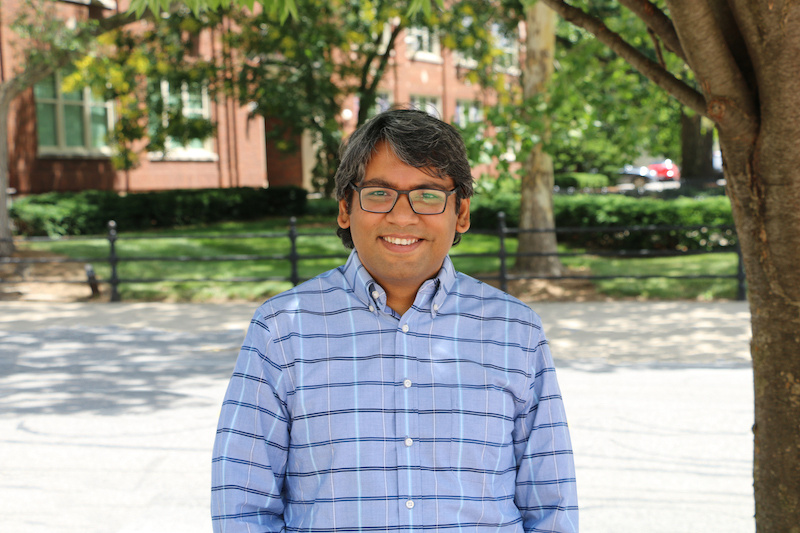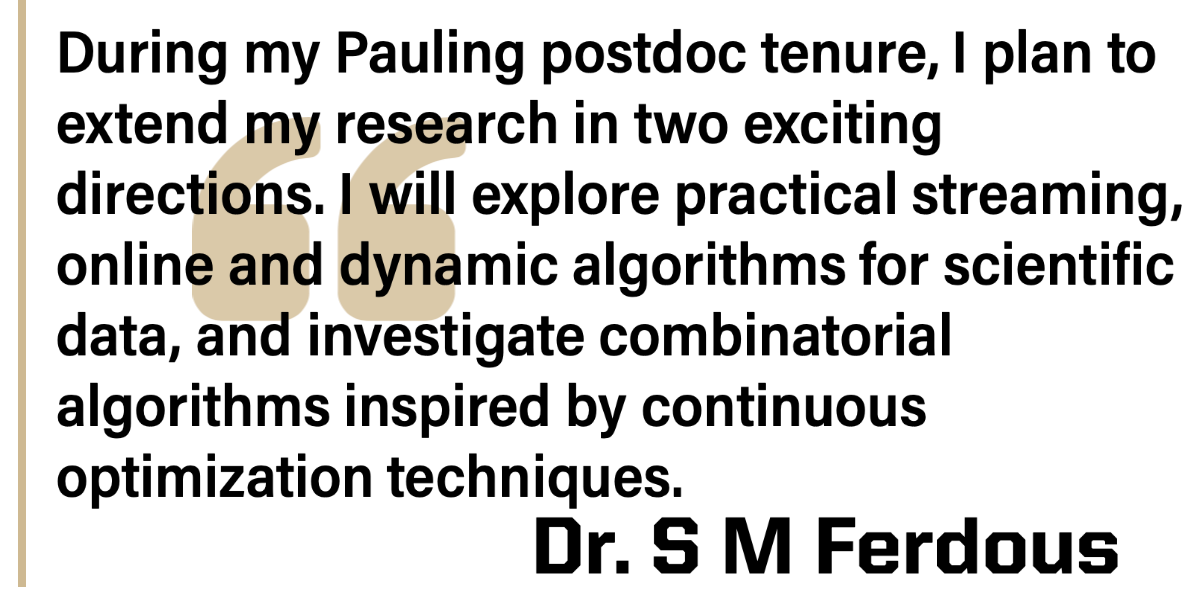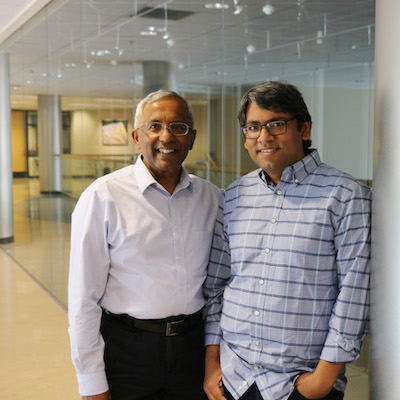Purdue grad focused on data science and computational science research named Pauling Fellow at PNNL
07-11-2022

A Purdue graduate will join Pacific Northwest National Laboratory (PNNL) as a Pauling Fellow to learn cutting-edge approaches, utilize and build state-of-science capabilities, and contribute to research efforts in the fields of data science and computational science.
Dr. S M Ferdous, a postdoctoral research associate and doctoral graduate working with Professor Alex Pothen in Purdue University’s Department of Computer Science, was recently named a recipient of the prestigious Linus Pauling Distinguished Postdoctoral Fellowship awarded by PNNL.
PNNL’s Linus Pauling Distinguished Postdoctoral Fellowship is designed for the next generation of scientists and engineers who will push the boundaries of science to world-recognized discoveries. Linus Pauling (1901-1994) was a chemist at the California Institute of Technology, and a two-time Nobel Laureate in chemistry and peace.
Since its inception in 2009, Pauling Fellows have been selected from different physical science domains, including chemistry, biology, engineering, geosciences, and bioinformatics. S M Ferdous is the first Pauling Fellow within the discipline of computer science.
S M Ferdous earned his PhD in computer science from Purdue University in 2021, supervised by Pothen. His research focuses on developing efficient and scalable algorithms for combinatorial scientific computing with theoretical guarantees and practical applications.

S M Ferdous will begin his fellowship in July 2022; his appointment is for two years with a potential renewal for a third year. While at PNNL, he will be working in the Data Science and Machine Intelligence group with his mentor, Dr. Mahantesh Halappanavar, chief computer scientist and group leader at PNNL.
“We are excited to host Ferdous as a Linus Pauling Distinguished Postdoctoral Fellow, with a focus on core computer science research. We intend to enable him to advance scientific frontiers and solve pressing challenges for the nation,” said Halappanavar.
“I am excited to collaborate and learn from several outstanding scientists and researchers in the computational and physical sciences at PNNL,” said S M Ferdous.
He added, “During my Pauling postdoc tenure, I plan to extend my research in two exciting directions. I will explore practical streaming, online and dynamic algorithms for scientific data, and investigate combinatorial algorithms inspired by continuous optimization techniques.”
“Ferdous’s Pauling Fellowship is a prestigious recognition of his outstanding work in data science and combinatorial scientific computing,” said Pothen. He added, “It resulted from the collaboration of my research group with colleagues at PNNL and other Department of Energy labs through the Exascale Computing Project, the Scientific Discovery through Advanced Scientific Computing (SciDAC), and Data Reduction for Science – all initiatives in recent years which are major investments in science at national and international scales. I look forward to the advances in data science and computational science that Ferdous’s work will lead to in the coming years,” said Pothen.
During his doctoral research, S M Ferdous studied degree-constrained subgraph problems and developed several high-performance approximation algorithms. He applied these algorithms to different practical applications, such as preserving privacy in user data, and improving the scalability of quantum chemistry computations in NWChemEx software on a leadership-class supercomputer at Oak Ridge National Laboratory.
S M Ferdous was also awarded the John R. Rice Fellowship by the Department of Computer Science for his research accomplishments in scientific computing in 2019-2020, and the Ross Fellowship as an outstanding incoming graduate student in 2015-2016.

About Pacific Northwest National Laboratory
Pacific Northwest National Laboratory draws on its distinguishing strengths in chemistry, Earth sciences, biology and data science to advance scientific knowledge and address challenges in sustainable energy and national security. Founded in 1965, PNNL is operated by Battelle for the Department of Energy’s Office of Science, which is the single largest supporter of basic research in the physical sciences in the United States. DOE’s Office of Science is working to address some of the most pressing challenges of our time. For more information, visit https://energy.gov/science. For more information on PNNL, visit PNNL's News Center.
About the Department of Computer Science at Purdue University
Founded in 1962, the Department of Computer Science was created to be an innovative base of knowledge in the emerging field of computing as the first degree-awarding program in the United States. The department continues to advance the computer science industry through research. US News & Reports ranks Purdue CS #20 and #18 overall in graduate and undergraduate programs respectively, ninth in both software engineering and cybersecurity, 13th in programming languages, 17th in computing systems, 22nd in theory, and 24th in artificial intelligence. Graduates of the program are able to solve complex and challenging problems in many fields. Our consistent success in an ever-changing landscape is reflected in the record undergraduate enrollment, increased faculty hiring, innovative research projects, and the creation of new academic programs. The increasing centrality of computer science in academic disciplines and society, and new research activities - centered around data science, artificial intelligence, programming languages, theoretical computer science, machine learning, and cybersecurity - are the future focus of the department. cs.purdue.edu
Writer: Emily Kinsell, emily@purdue.edu
Sources: S M Ferdous, sferdou@purdue.edu
Alex Pothen, apothen@purdue.edu